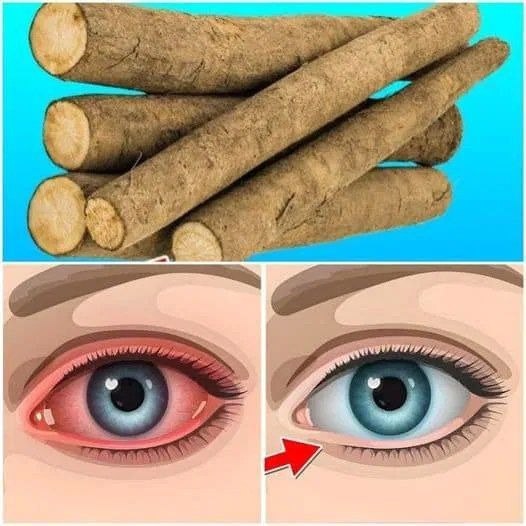Introduction

In today’s digital age, our eyes are constantly exposed to screens, artificial light, and environmental stressors, leading to common vision problems like eye strain, dry eyes, and deteriorating eyesight. However, nature provides powerful solutions to maintain and even restore our vision. By incorporating specific herbs into your daily routine, you can nourish your eyes, prevent degeneration, and even repair vision naturally.
In this blog, we’ll explore five potent herbs scientifically recognized for their ability to protect eyesight and support eye health. Read on to discover the best herbs for improving vision, how they work, and how you can use them to strengthen your eye health today.
1. Bilberry (Vaccinium myrtillus): The Ultimate Vision Protector
Why Bilberry is Essential for Eye Health
Bilberry is often referred to as the “vision herb” due to its high anthocyanin content, a type of flavonoid with strong antioxidant and anti-inflammatory properties. These compounds strengthen the retina, enhance night vision, and reduce the risk of macular degeneration and cataracts.
Scientific Backing
- A study published in the Journal of Nutrition found that bilberry extract improves visual function in individuals with glaucoma.
- Research indicates that anthocyanins in bilberries enhance blood circulation to the eyes, improving oxygen and nutrient delivery to the retina.
How to Use Bilberry
- Take bilberry supplements (80–160 mg daily) with at least 25% anthocyanins.
- Drink bilberry tea or consume fresh bilberries.
2. Ginkgo Biloba: The Circulation Booster for Sharp Vision
Why Ginkgo Biloba is Crucial for Eye Protection
Ginkgo Biloba enhances blood flow to the optic nerve and retina, reducing the risk of glaucoma and age-related macular degeneration (AMD). It also protects against oxidative stress, a leading cause of vision loss.
Scientific Backing
- A study in the Journal of Ophthalmology found that ginkgo biloba improved visual function in patients with normal-tension glaucoma.
- Ginkgo’s flavonoids and terpenoids prevent oxidative damage to eye cells, improving overall vision quality.
How to Use Ginkgo Biloba
- Take a standardized extract (120–240 mg daily).
- Brew ginkgo biloba tea and consume regularly.
3. Eyebright (Euphrasia officinalis): The Soothing Herb for Eye Irritation
Why Eyebright is a Must-Have for Eye Care
As its name suggests, eyebright has been used for centuries to treat eye infections, inflammation, and strain. It contains tannins, flavonoids, and essential oils that reduce eye redness, swelling, and irritation.
Scientific Backing
- Clinical studies suggest that eyebright effectively relieves conjunctivitis, dry eye syndrome, and eye allergies.
- It acts as a natural astringent, tightening tissues around the eyes and reducing excessive fluid build-up.
How to Use Eyebright
- Use eyebright eye drops for relief from irritation.
- Drink eyebright tea to support eye health from within.
4. Saffron (Crocus sativus): The Golden Spice for Retinal Health
Why Saffron is a Vision Superfood
Saffron is rich in carotenoids like crocin and crocetin, which protect retinal cells from oxidative stress. Studies show that saffron supplementation can slow down age-related macular degeneration and improve visual acuity.
Scientific Backing
- A clinical trial published in The Journal of Translational Medicine showed that saffron improves retinal function and visual sharpness in patients with early-stage AMD.
- Saffron’s neuroprotective properties help protect photoreceptor cells from damage.
How to Use Saffron
- Add a pinch of saffron to warm milk or tea.
- Take saffron supplements (20–30 mg per day).
5. Turmeric (Curcuma longa): The Inflammation Fighter for Clear Vision
Why Turmeric is a Game-Changer for Eye Health
Turmeric contains curcumin, a powerful anti-inflammatory compound that prevents retinal degeneration and oxidative damage. It also improves circulation and protects against diabetic retinopathy and cataracts.
Scientific Backing
- A study published in The Journal of Investigative Ophthalmology found that curcumin reduces inflammation and oxidative stress in the retina.
- Turmeric boosts glutathione levels, a key antioxidant for protecting eye tissue from aging.
How to Use Turmeric
- Mix turmeric with black pepper for better absorption and add it to meals.
- Take curcumin supplements (500–1000 mg daily).
Frequently Asked Questions (FAQs)
1. Can herbs really improve vision?
Yes, scientific studies confirm that herbs like bilberry, ginkgo biloba, and saffron can enhance vision, improve blood circulation, and reduce oxidative stress, leading to better eye health.
2. How long does it take to see results?
Depending on your eye condition, noticeable improvements can take 4–12 weeks with consistent herbal use.
3. Are there any side effects?
Most of these herbs are safe when taken in recommended doses. However, always consult a doctor if you’re pregnant, nursing, or taking medication.
4. Can I combine these herbs?
Yes! Many supplements include multiple eye-protective herbs for synergistic benefits.
5. Should I still wear glasses?
While herbs support vision health, they don’t replace corrective lenses. Maintain regular eye check-ups for optimal care.
Conclusion
Your vision is one of your most valuable senses, and protecting it should be a priority. By incorporating bilberry, ginkgo biloba, eyebright, saffron, and turmeric into your daily routine, you can enhance eyesight, prevent deterioration, and even repair vision naturally. Start small by adding these herbs to your diet or supplement regimen and experience the benefits of better eye health.


